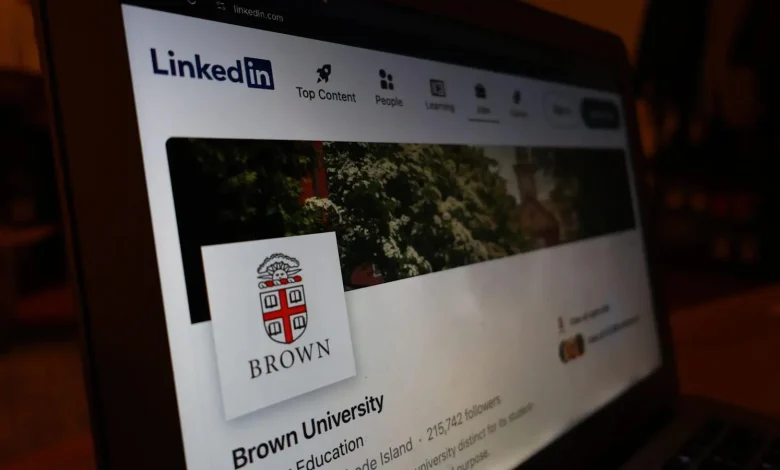Students, Career Center staff voice concerns about bleak job market

Many first-year students arrive at Brown hopeful that a degree will be a sure path to employment after graduation. By their senior year, students’ optimism may be weaker: The number of seniors pessimistic about the job market was markedly higher than first-year students, according to The Herald’s Fall 2025 Poll data.
Respondents to a Wall Street Journal employer survey predicted the most dismal college-graduate job market since 2020. Out of 183 surveyed employers, a majority rated the job market as “poor” or “fair” for 2026 college graduates. Companies noted that an uncertain economic outlook has motivated conservative hiring choices, and more executives discussed the potential for artificial intelligence to displace new graduates from their typical tasks, the survey reported.
Students concentrating in computer science have experienced the stress of a more adverse job market firsthand. Austin Liu ’27 said that the “influx of people” interested in computer science roles has made the job hunt “more of a rat race.”
But after an extended period of networking and submitting applications, Liu was successful in securing a job offer. “If people just keep trying and are hardworking, everyone will eventually find something,” he said.
Toby Otting ’27, who is studying the history of art and architecture, currently teaches at the Rhode Island School of Design Museum and has completed a summer internship at the Whitney Museum of American Art. But he remains “somewhat pessimistic” about future job prospects in the arts.
“Endowed positions and stipend positions are not really continuing to exist as much as they have been because of the slashing of federal funding in institutions,” Otting said.
Within the nonprofit sector, recent graduates compete for a small number of open roles because these companies often hire students for individual positions rather than in cohorts or fellowship programs, said Jim Amspacher, assistant dean of the college for careers in the common good and director of the Professional Pathways Program in the Center for Career Exploration.
“The students I worked with from the class of 2025 have been able to find nonprofit, local and state government and positive social impact opportunities post-graduation, but it has taken longer than it took in past years,” he added.
Given the “very competitive” nature of securing jobs in the arts, Otting added, “I’m grateful that I go to a school that will probably give me at least a tiny bit of a leg up.”
Assistant Dean for Careers in Arts and Media Rachel Edwards Harvith explained that decreased funding for nonprofit organizations and the government’s targeting of diversity initiatives have adversely affected employment opportunities.
“On the one hand, some arts and media institutions are experiencing pressure to modify their content,” Harvith wrote in an email to The Herald. “On the other hand, mentoring and entry-level programs that were specifically designed to diversify companies or competitive industries such as film and arts leadership are closing.”
Uncertainty in the job market has also driven some students to reconsider their academic pathways to prioritize flexibility and optimize future employment opportunities.
Solar Lu ’29, a Brown-RISD Dual Degree student, said they weighed their interest in academia against jumping straight into the job market post-graduation.
Ultimately, she said she decided to study international and public affairs, which she felt maximized her chances of employment, while still being versatile.
But Lu acknowledged the struggle to balance personal exploration with worries about professional development.
“When I’m seeing the people around me go into more reliable industries and use their time and energy into developing their career in that way, it feels like I’m not necessarily advancing forward in the same way because I’m allowing myself to explore,” Lu said.
Director of Career Counseling Ron Foreman said that “the first job does not dictate what you will be doing for the next 30 years.”
“If you are patient, focus on networking more than applying to hundreds of online listings and do not compare yourself to your peers, the process will be less stressful and you will eventually land something you feel good about,” he said.
Get The Herald delivered to your inbox daily.





